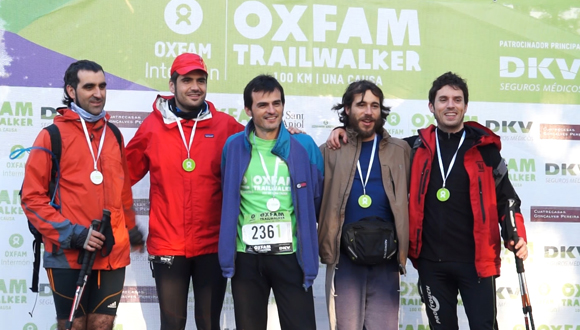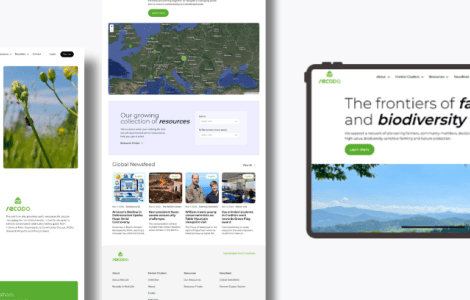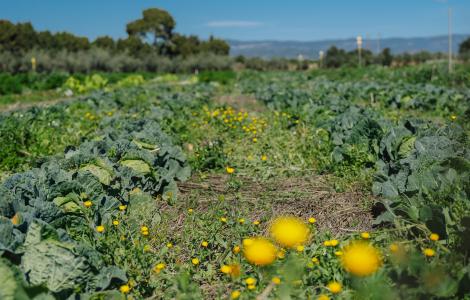Lluís Pesquer or how to put mathematics at the service of research
Lluís Pesquer's story is extremely fluid, clear, direct and touched by modesty. Or perhaps it is filtered by discretion... Who knows? I may be even a heterogeneous combination of both.
His mind as a physicist captivated by mathematics has a lot to do with his orderly and methodical exposition. In addition, the commitment of research towards science and team work often appear in his speech, even without him being too aware of it, and as a natural evolution of his career. The other word that is sprinkled throughout his narrative is passion.
His true passions were evident when he had to choose between studying Physical Education, Mathematics or Physics at university.
His true passions were evident when he had to choose between physical education, mathematics and physics. He solved the equation by enrolling in Physics at the University of Barcelona - where he specialised in Astrophysics -, dedicating hours and effort to mathematics and continuing with sport as a priority in his free time.

When asked what a physicist is doing working on research into ecology, he replies that mathematics is the key. He arrived at CREAF to provide computer programming solutions to researcher Xavier Pons, after teaching and programming for logistics and economic management companies. The leap was a big one and involved moving from logistics and accounting for the private sector to Geographic Information Systems (GIS) for public research. "At that time I still didn't know what the Geographic Information Systems that Xavier Pons and his research team were working with were, let alone Ecology", he recalls with an amused tone of surprise from a distance. "What motivated me at CREAF was programming applications to contribute to research," he explains. "Physicists, at least me, like mathematics a lot and creating that kind of algorithms was exciting to me".
A thesis out of passion
Curiosity and the desire to decipher what lies behind the acronyms of Geographic Information Systems led Lluís Pesquer to enrol in the master's degree in Computer Science at the Autonomous University of Barcelona. He dedicated his doctoral thesis to it, supervised by Xavier Pons. The field of study he chose focused on how to optimise the management of big data in science for geostatistical models, although it also had other applications. This is where geostatistics comes in, "a subject I am passionate about", he says. He wrote his doctoral thesis while working and without applying for a grant, thus putting in the effort and dedication outside working hours at CREAF.
"The effort involved in writing my doctoral thesis necessarily involved more than just a change in professional or economic status. I did it because I am passionate about the field of study"
"I did the thesis because I was attracted by the subject, not because of anything else", he remarks. And he adds an emphatic statement: "A change of either professional or economic category would not have been enough motivation to do the doctoral thesis.... The effort involved required something else”.
And this was the first step in the transition from management to research, as he found himself in the right place and at the right time to take charge of research projects which until then had been taken on by CREAF researcher Joan Masó.
A technological approach to water
The opportunity came true thanks to a proposal to manage a European research project with a strong technological component, which came directly from the Water and global change group, and from Olga Roig, CREAF's international projects manager. "It was a very technological approach to water", he recalls, "we won it and I coordinated it without having previously been part of the group as a researcher".
Climate change is often, but not always, the common thread of his dedication. It is, indeed, in a current climate modelling project driven by the European Space Agency to generate a high-resolution land cover map, as part of a Climate Change Initiative programme.
The brand new European research for CREAF in which it is involved is on climate and water, and studies the medium and short-term projections of climate models on river basin management and water resources. It is part of Copernicus Climate Change Services and aims at ensuring global specificities in a series of global climate predictions and projections. "For the first time, I can apply geostatistical analysis to research, as until now my involvement in this area has been oriented towards articles and teaching”. He believes the research he has been involved in so far "is valid and useful for Grumets group and to have background".
"I have taken advantadge several times from the enormous trail CREAF researcher Joan Masó has blazed in European projects"
It is tempting to ask him what response he gets when he pronounces CREAF's name in meetings with research centres from all over Europe and beyond: "Most of the time they know us and it must be said that the person who has helped us in our field is the researcher Joan Masó, for sure. I have benefited several times from the enormous trail Joan Masó has blazed. In different fields, also by researcher Josep Peñuelas and his team, as well as researchers Jordi Martínez-Vilaltaand Maurizio Mencuccini".
This action is part of the Severo Ochoa “ULandscape” funded in 2019 by the Agencia Estatal de Investigación of the Spanish Ministry of Science and Innovation to support Research Centres of Excellence.







